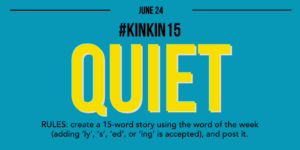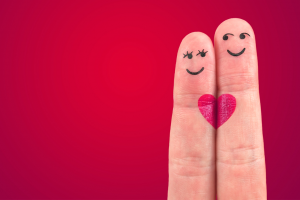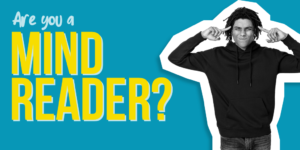Let’s talk about empathy. What is empathy, really?
There are three types of empathy:
- Emotional
- Cognitive
- Compassionate
Empathy is powered mostly by mirror neurons. Mirror neurons are a class of neuron that modulate their activity both when an individual executes a specific motor act and when they observe the same or similar act performed by another individual.
In other words, these little thingys in our brains MIRROR what we see others doing. See people feeling sad? Mirror neurons put on their “feeling sad” pants, and boom! We feel sad, too.
That’s emotional empathy, feeling what others feel, “putting yourself in their shoes.”
Emotional empathy is a super power. It syncs you with others. You can comprehend and feel their pain as your own. Also their joy. WOW!
Emotional empathy is necessary to human evolution and it’s fucking amazing. It can also burn you out: A study by three Australian researchers found that, under stress, emotionally perceptive individuals reported higher levels of depression and hopelessness.
They can feel what others are feeling, and it adds to their own. Absorbing other people’s pain is exhausting, especially in therapeutic or care-taking fields, or in dysfunctional relationships. Over time, it can burn you up.
(I’m missing some function in this area. It’s called ASPD. That’s where I’m “broken.”)
Then, there is cognitive empathy. This is a result of active listening and attention combined with results-oriented observation, leading to more and more accurate insights into what people think and feel.
It’s essentially turning your brain into a database of findings that lead you to more accurate understanding and predictions over time.
I can do this, after years of practice and care.
There is a big difference between the two, though.
Because those who have emotional empathy, especially those who have it strongly, FEEL what others feel, and often don’t know the feelings aren’t theirs.
This is the trap.
Because when those rushes of feelings flood over you, it’s not easy to separate them from your own.
Now, this may not happen to you. Let’s go over a couple of examples:
You’re in a great mood, waiting impatiently for your mate to get home, so you can tell them all about your amazing news.
They get home, and they’re a bit cranky. They listen to your news, and they just don’t get super-excited. In fact, they seem kind of annoyed.
You immediately get annoyed, like really annoyed. How dare they?
You’re walking along on a beautiful sunny day feeling down.
Then, you see a baby laughing and smiling. Suddenly, your whole outlook brightens. You can do this. It doesn’t seem nearly as bad as it did just moments before.
Your partner begins to cry, and your eyes well up.
You suddenly feel sad as well.
—
Of course, these are simplistic examples.
And even without innate empathy, you might feel shadows of these things: annoyance that your partner did not share your joy; brightening a bit, because babies are cute; feeling sad that your partner is sad.
With innate empathy, though, you will feel what you feel, and feel what they feel. Their feelings may affect your feelings, change your feelings, heighten your feelings, or even drown out your own feelings altogether.
Like when one partner is cranky, and the other picks up on those feelings, and feeds them back, so partner one is now cranky AND annoyed that their partner is being cranky, too, which now affects the second partner, adding to their distress…
And so on.
And that’s the trap.
Trapping us in our feelings with another.
YES, it’s good to know how the people around you feel and care. That’s not a trap. In fact, I view that as a sort of magic that I wish I had WAY more of than I do.
It’s NOT good, however, to feel their feelings as if they were yours, and not know where your feelings begin and theirs end.
Because, not only is it more difficult then to find any sort of solution, with both of you flailing about in emo-land, but your sadness might be mixed with your own experiences and feelings, while theirs is with their own, which could create two terribly different experiences.
I had someone once accuse me of causing shame to someone in public.
I know I can miss such things, and I was horrified. I went to the person, and apologized. They were surprised. They were, indeed feeling shame when I did what I did, but it was at something else, and what I did actually alleviated the issue.
The person making the accusation felt the shame and attributed it to what I was doing, because that would have bothered them, which was totally different from what was happening in the other person’s head.
Which is why I posted this last Friday: When They Lose Their Shit…, about allowing the person’s whose emotions boil over to have their time, and to not react with our own responses, emotions, and such.
Because it’s too easy for someone’s upset to upset us, and a simple issue to become a knock-down-drag-out fight (literally or figuratively), when setting the emotions we feel aside to pay attention can give us the space we need to see and solve.
So, we turn to compassionate empathy.
Compassionate empathy may stem from emotional empathy or cognitive empathy. It’s how we engage with it that matters.
It’s a sort of mild detachment, separating of ourselves from another, and allowing them to fill the “them” part of us with their feelings, while keeping our personal emotional boundaries in place so all those feelings don’t spill over into the “us” parts of us.
Unless of course, we WANT them to fill us with their joy, their love, their desire, their tenderness…
And that’s cool.
However, to take on their despair, their hopelessness, their sorrow? It’s hard to find the way, even together, when both sets of eyes are filled with tears.
So, how do we do this?
When we feel another’s suffering infusing us, we put that in the “them” part of us, and focus on what we can do to help.
Instead of focusing on the suffering, focus on the relief. Instead of feeling hopeless, feel hopeful. Look for the ways to create change, to help, to share your own joy or strength or resoluteness.
Look for a way to pull them out, to offer a hand.
And avoid the trap yourself.
A few more writings on empathy and the desire to help:






